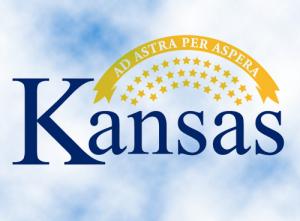Appeals Court Rejects Formula Rate Challenge

Finding that the Kansas Corporation Commission (KCC) had not yet suffered any injury in fact upon which it could claim standing to pursue a complaint against the Federal Energy Regulatory Commission (FERC), the U.S. Court of Appeals for the District of Columbia Circuit has dismissed the state commission’s petitions. The debate centered on an argument by the KCC that FERC had prematurely approved formula rates for future electric transmission service without any way of knowing whether such rates, at the time actually applied, would still be just and reasonable, as required under the Federal Power Act. The court, however, found that the KCC could not show that such future rates would not be just and reasonable. Consequently, the court declined to rule on the merits of the KCC’s claims, instead turning the matter into a threshold issue on standing.
The state commission had alleged that the FERC had erred in setting formula rates for future electric transmission operations in that such rates had been authorized without regard to specific facts in each case. According to the KCC, it is virtually impossible to assess the reasonableness of a rate in an advance ruling when the subject service will not be provided until “some unknown time in the future.” The state commission added that because the rates could apply to public utilities or other entities not yet even in existence, the FERC could not know whether the adopted rates would be appropriate when finally implemented.
The court, though, determined that the Kansas commission’s own arguments worked against it as far as demonstrating standing to prosecute its claims. It explained that inasmuch as the KCC’s contentions were premised on the idea that future, but unverifiable and as yet unknowable, circumstances could render the formula rates unreasonable, the KCC was admitting that it had not yet endured any definitive harm from the rates.
The appeals court noted that there are three primary criteria for satisfying the constitutional requirements for standing. That is, the court elaborated, to be considered as having standing, a party must (1) have an injury in fact; (2) be able to show that that injury is fairly traceable to the challenged agency action; and (3) be able to demonstrate that the injury likely will be redressed by a favorable decision.
The court expounded that while it may be logical to believe that the uncertainties of the marketplace could render the formula rates unjust by the time actually used, the KCC’s arguments nevertheless rested on nothing more than conjecture and speculation. As such, the court said, the Kansas commission had been unable to point to any actual, current injury that it or the state had endured as a result of the FERC’s early ruling on future formula rates.
The court observed that no harm will come to Kansas consumers unless a series of contingencies or “attenuated chain of possibilities” occurs at some unknown time in the future. In light of that fact, the court said it was clear that any harm to the KCC is only “conjectural or hypothetical.”
Therefore, concluding that the particularized effect of the FERC’s formula rate orders will not be felt by the KCC or Kansas consumers unless and until such a scenario unfolds, the court held that the state commission had not proven that any harm had yet occurred. Certainly, the court said, the KCC had not shown any harm that would rise to the level of an actual injury as is necessary to obtain standing. Kansas Corporation Commission v. Federal Energy Regulatory Commission, Nos. 16-1093, 16-1164, Feb. 6, 2018 (D.C. Cir.).


